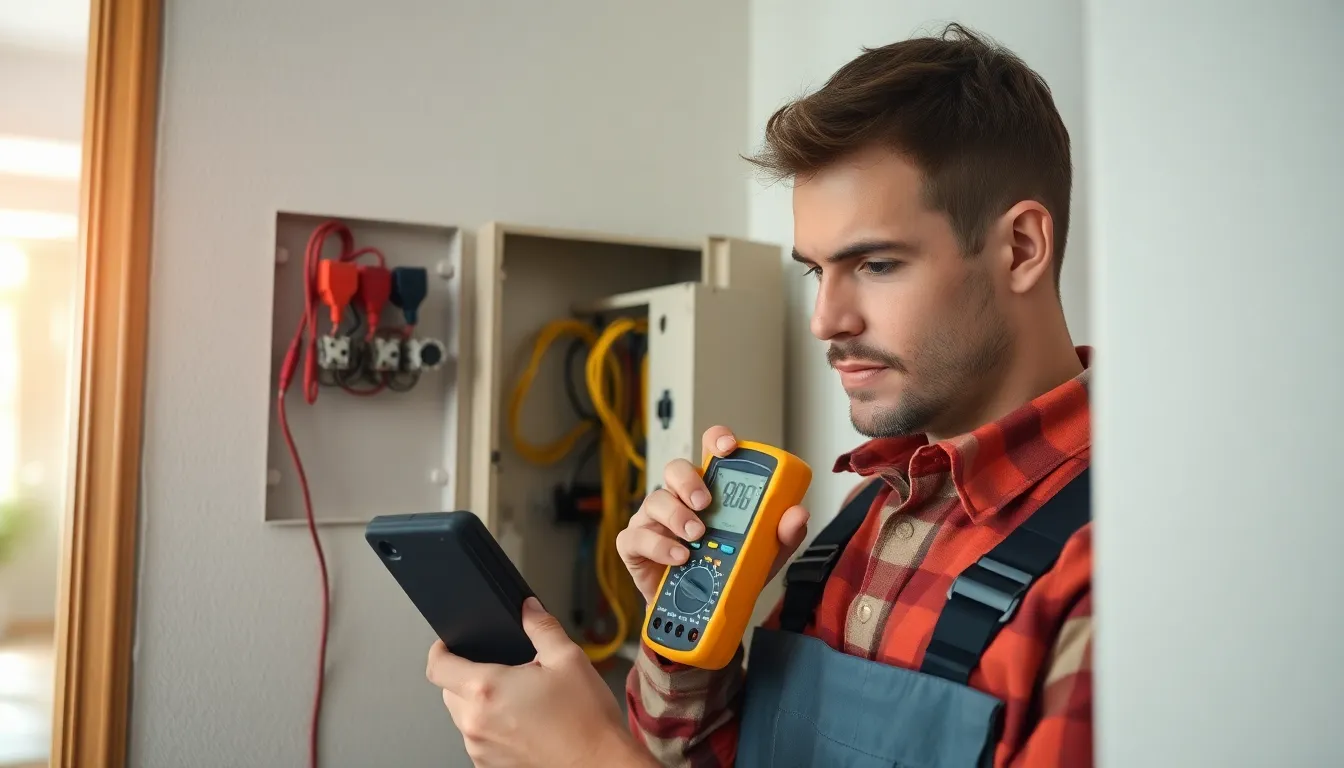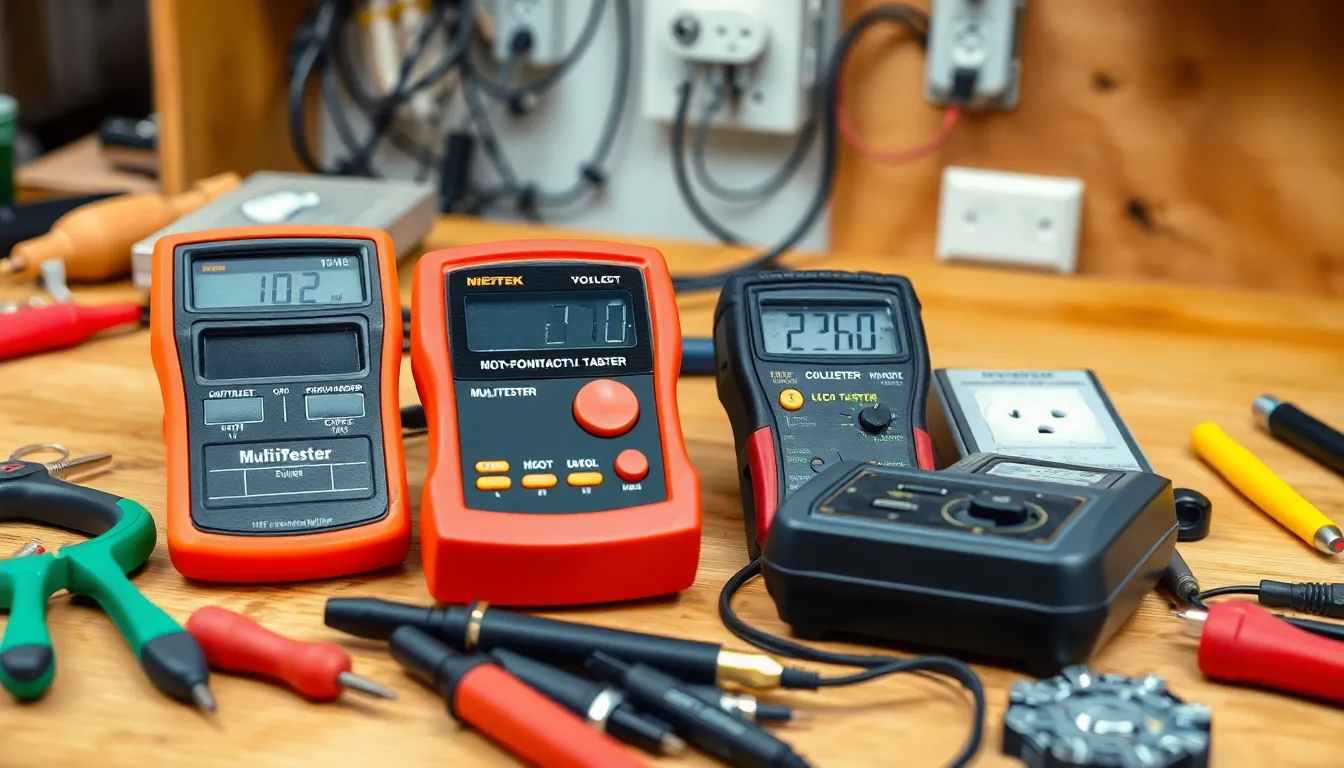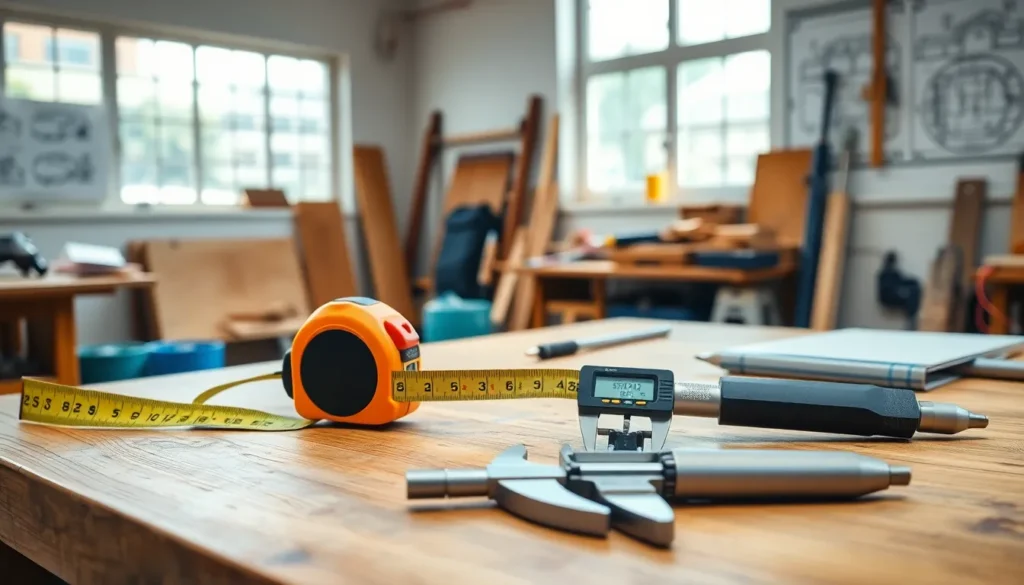In the world of electrical troubleshooting, circuit testers are the unsung heroes. These handy tools take the guesswork out of diagnosing electrical issues, making them a must-have for DIY enthusiasts and professionals alike. Imagine trying to fix a leaky faucet without a wrench—frustrating, right? That’s what tackling electrical problems feels like without a circuit tester.
Table of Contents
ToggleWhat Are Circuit Testers?
Circuit testers are instruments that identify electrical faults efficiently, acting as vital tools for maintaining and troubleshooting electrical systems. They simplify the process of checking voltage and continuity in circuits.
Types of Circuit Testers
Multiple types of circuit testers exist, including non-contact voltage testers, multimeters, and socket testers. Non-contact voltage testers detect voltage without direct contact, providing quick safety checks. Multimeters serve a dual purpose by measuring voltage, current, and resistance, offering versatility. Socket testers verify the wiring of electrical outlets, ensuring proper function.
How Circuit Testers Work
Circuit testers operate using specific principles based on their design. Non-contact testers sense electromagnetic fields generated by live wires, indicating voltage presence. Multimeters use probes to measure electrical properties, displaying readings on their screen. Socket testers plug directly into outlets, illuminating lights to signal proper or faulty wiring conditions.
Benefits of Using Circuit Testers

Circuit testers offer crucial advantages that enhance electrical safety and efficiency. By utilizing these tools, users can streamline troubleshooting processes, ensuring a more reliable diagnosis of electrical issues.
Safety Measures
Safety measures stand at the forefront when using circuit testers. They help prevent electrical shocks, allowing users to perform safety checks without touching live wires. Non-contact voltage testers detect voltage with just a wave over wires, ensuring reliance on visual and audible alerts. Multimeters provide accurate measurements, reducing the risk of accidents from incorrect assumptions. Regular use of these testers in residential or commercial settings fosters a culture of safety, giving both DIY enthusiasts and professionals confidence when working on electrical systems.
Time Efficiency
Time efficiency plays a significant role in circuit tester benefits. Quickly identifying faults minimizes delays in troubleshooting. Non-contact voltage testers require minimal setup, allowing users to perform quick checks. Multimeters enable fast assessments of voltage, current, and resistance in a single device, eliminating the need for multiple tools. Socket testers deliver instant feedback on outlet wiring, ensuring swift corrections. By using circuit testers, professionals can complete jobs faster, increasing productivity and ensuring timely electrical repairs.
How to Choose the Right Circuit Tester
Selecting the right circuit tester involves evaluating specific features and considering reputable brands.
Features to Consider
Look for essential features such as voltage range, capabilities, and ease of use. A wide voltage range accommodates various applications, from low-voltage circuits to high-voltage systems. Intuitive designs enable users to operate testers efficiently, especially during complex troubleshooting. Durability matters; testers with rugged housing withstand demanding environments. Additionally, consider functionality—many testers combine multiple functions like voltage testing and continuity checking, increasing versatility. Safety ratings, including compliance with OSHA standards, enhance user protection when working on electrical systems.
Popular Brands
Certain brands stand out for their reliability and innovation. Klein Tools specializes in versatile testers that cater to both professionals and DIY enthusiasts. Fluke offers advanced multimeters known for accuracy and robust performance. Extech features a range of testers that fit various budgets while providing reliable functionality. Greenlee also deserves mention for its user-friendly designs and quality construction. Each of these brands ensures dependable performance, fostering confidence while diagnosing electrical issues.
Common Applications of Circuit Testers
Circuit testers play a crucial role in various settings, ensuring safety and efficiency. They help identify electrical faults in both residential and commercial environments.
Residential Use
In residential settings, circuit testers are indispensable tools for homeowners and electricians. These devices detect voltage in wires, making them essential for checking outlets, light fixtures, and appliances. Homeowners rely on non-contact voltage testers for quick safety checks, significantly reducing the risk of electrical shocks. They also use multimeters to measure voltage or current, helping to troubleshoot electrical issues efficiently. Regular testing of circuits ensures that homes remain safe and functional.
Commercial Use
Commercial applications of circuit testers focus on maintaining electrical systems in businesses and industrial facilities. Electricians rely on circuit testers to evaluate the performance of complex wiring systems, ensuring safety in high-stakes environments. Multimeters are commonly used to verify the voltage, current, or resistance of equipment, enhancing operational efficiency. Socket testers help confirm that outlet configurations are correct, preventing potential problems before they affect productivity. Maintenance teams benefit from regular assessments, minimizing downtime and ensuring reliable service.
Circuit testers are indispensable tools that elevate electrical safety and efficiency. Their ability to quickly diagnose issues saves time and enhances productivity for both DIY enthusiasts and professionals. By choosing the right tester, users can ensure accurate measurements and reliable performance while minimizing risks associated with electrical work.
With various types available, each serving unique functions, circuit testers cater to a wide range of applications. Whether it’s a non-contact voltage tester for quick safety checks or a multimeter for detailed measurements, these tools empower users to tackle electrical challenges confidently. Embracing circuit testers not only streamlines troubleshooting but also promotes a culture of safety in electrical practices.










